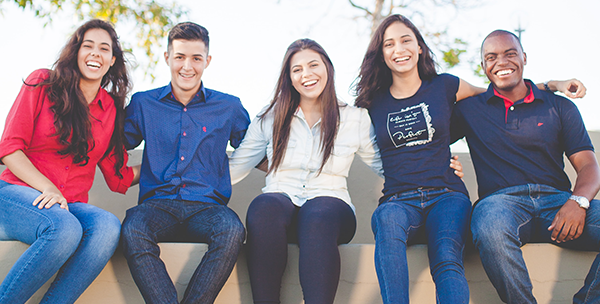Family Counseling Insights brought to you by California Psychotherapeutic Resources, Inc.
Do you ever wonder why some people are still religiously wearing masks outdoors while others have no qualms about entering a crowded theater bare-faced and smiling? You may fall somewhere in between these approaches to life in the waning days of the pandemic, but there’s actually a larger point to think about. Specifically, is either person A (mask wearer) or person B (free breather) fully in control of their responses to the pandemic?

This is a question that renowned author and psychiatrist Dr. Daniel G. Amen has dealt with and researched extensively for decades. He believes that someone’s response to all sorts of life’s issues — including their response to the pandemic — is significantly determined by “brain type.”
Writing for Healthline.com, Cathy Cassata cites Dr. Amen’s work and writes, “Adjusting back to a life that resembles the days before the COVID-19 pandemic may bring challenges for some. As you navigate the transition, understanding your brain type and its connection to happiness could help you embrace how you get back into the world.”
Dr. Amen has identified five brain types and traits associated with each type. A person with a certain type might be expected to respond to post-pandemic life in fairly predictable ways. Do you recognize yourself in any of the following brain types? If so, have you experienced yourself reacting in the associated ways? Without going into a philosophical discussion of free will, it’s fair to say that we are driven to a degree by our nature. Now the trick to controlling if not overcoming our nature is recognizing our natural tendencies and then choosing to act in a way that we are comfortable with.
Five Brain Types
Balanced brain. People with a balanced brain will probably ease right into post-pandemic life because they’re flexible, cautious and pretty willing to follow safety guidelines. Cassata cites their traits as:
- Focus
- Good impulse control
- Conscientiousness
- Flexibility
- Positivity
- Resilience
- Emotional stability
Spontaneous brain. Marked to a degree by impulsiveness, these people may need to work on that trait in our new world. After all, living with a bit of caution is probably a good idea going forward. Cassata cites their traits as:
- Spontaneity
- Risk-taking
- Creativity, out-of-the-box thinking
- Curiosity
- Varied interests
- Short attention span
- Impulsiveness; careless mistakes
- Restlessness
- Disorganization
- Love of surprises
- Tendency toward ADHD
Persistent brain type: When the pandemic shattered routines, these people suffered… a lot. Getting back to normal is going to require consciously working on flexibility. Cassata cites their traits as:
- Persistence
- Strong will
- Preference for routine
- Inflexibility or stubbornness
- Easily “stuck” on thoughts
- Resentment
- Tendency to see what is wrong
- Opposition, argumentativeness
- Obsessive-compulsive tendencies
Sensitive brain. Deeply empathetic, these people immediately missed their social connections during the pandemic. Luckily, it is getting easier and easier to rekindle those connections. Cassata cites their traits as:
- Sensitivity
- Deep feelings
- Empathy
- Mood variability
- Pessimism
- Lots of negative thoughts
- Depression
Cautious brain. The insecurity caused by the pandemic brought these people a lot of anxiety. For them the struggle will be fighting the fear of another pandemic coming. Cassata cites their traits as:
- Preparation
- Risk aversion
- Motivation
- Reserve
- Busy-mindedness
- Moodiness
- Difficulty relaxing
- Anxiety
Of course, as with similar descriptions of personality types, there is a bit of crossover in brain types. But if you largely identify with the traits of one of Dr. Amen’s brain types, it’s worth reflecting on how you can consciously deal with any negative issues that may seem to be out of your control because of your inborn traits. The first step in taking control of your post-pandemic life is recognizing your natural tendencies.